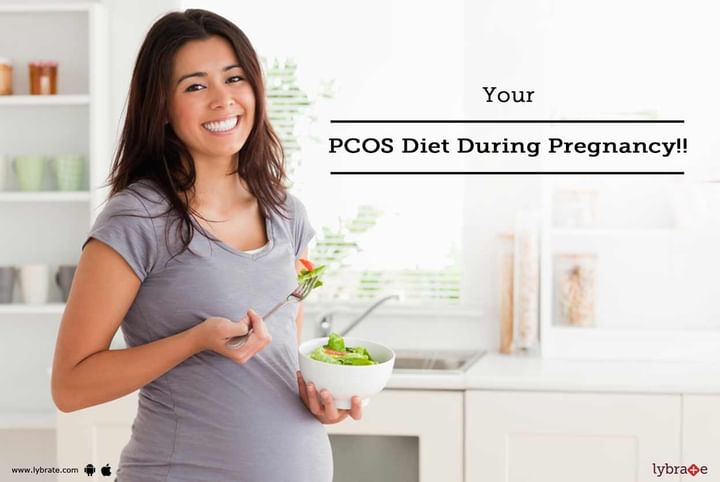PCOS Diet During Pregnancy Period - Nutrition Tips
Polycystic Ovarian Syndrome or Disease (PCOS) is a very common condition, wherein there are multiple cysts in the ovaries. As a result, there are many changes which the body undergoes and it is not limited to the gynecologic system.
A woman with PCOS may also find it difficult to conceive, and so, once she is pregnant, precautions are essential to ensure there are no complications. Even the diet becomes more important for pregnant women, here we discuss the best diet for PCOS during the pregnancy period.
Pcos predisposes women to diabetes, hypertension, obesity, cardiovascular complications, lipid metabolism disorders, uterine cancer in the long run. Some of them are listed below:
- Preeclampsia: When the blood pressure readings are high during pregnancy, it is known as preeclampsia. It brings with it a whole lot of complications including the need to cesarean section, premature birth, etc. So, it is best avoided, and diet can help to some extent.
- Diabetes: Gestational diabetes which manifests as higher sugar levels only during pregnancy is very common in women with PCOS. The increased hormone levels in PCOS increase insulin resistance, thereby increasing sugar levels. This needs to be managed through a combination of diet, exercise, and lifestyle changes.
- Preterm labor: Women with PCOS are at a slightly higher risk of premature labor.
- Weight-related issues: PCOS leads to weight gain, and this could be a problem during pregnancy. It is essential to discuss with the doctor as to what would be a good weight range and stay within that range throughout pregnancy. Weight gain brings with it a host of complications and so best avoided.
Pcos Diet While Pregnancy Period
With PCOS, during pregnancy, strict cautious diet planning can help in avoiding complications and allow for an easier pregnancy. Though they may not solve every problem associated with PCOS, dietary modifications can have a significant effect on the overall health and well-being. Listed below are some easy-to-make changes:
- Increased consumption of fibers food like greens, nuts, pumpkin, berries, whole grains, almonds, etc. are included. This ensures that digestion is a prolonged and gradual spike in blood sugar levels.
- Increase protein-rich foods like soya, tofu, eggs, and chicken, which help in avoiding binging. They are light on the stomach and help in weight management.
- Foods that are generally anti-inflammatory including tomatoes, olive oil, spinach, fresh fruits, and omega-3 fatty acids help in controlling blood pressure and cholesterol levels of pregenent women suffering from PCOS
- Food Supplements includes omega-3 fatty acids, prenatal vitamins, vitamin D, and calcium is required to ensure that the baby gets the required nutrients for optimal growth.
Dietary Changes - Food Need to Avoid
Anything that can spike up calories and is of low nutritional value should be avoided by pregnant women.
- Avoid whites – pasta, rice, and bread
- Baked and processed foods
- Candies, chocolates, snacks
- Salty and spicy fried snacks
- Aerated drinks and soda
PCOS in pregnancy presents a combination risk, and dietary changes can be very helpful to avoid any kind of risk to the baby and weight management are essential for a safe pregnancy. If you wish to discuss any specific problem, you can consult a Gynaecologist.
Update From Lybrate: Replace your regular and boring breakfast with these Healthy Breakfast products available on Lybrate. These items also help to boost your immunity.



+1.svg)
